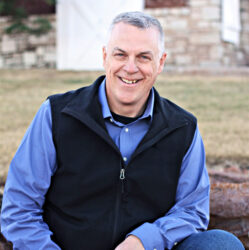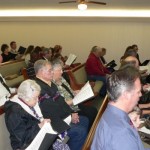No doubt you have heard that on the last day of May, 2012, John Edwards, a former presidential candidate for our United States, was found not guilty! All accusations of the misappropriation of funds, his inappropriate moral behavior, and his numerous ill-advised decisions and the jury said; “Not Guilty.”
presidential candidate for our United States, was found not guilty! All accusations of the misappropriation of funds, his inappropriate moral behavior, and his numerous ill-advised decisions and the jury said; “Not Guilty.”
But notice the words that came from his own mouth during his address to the media. With the camera’s rolling and his parents standing behind him, John Edwards stated that he did nothing illegal, but ‘an awful lot’ wrong. Sounds like he has gotten a grasp on the stand we take in American culture. We may be wrong in what we are doing (have done), but at least it’s not illegal. As long as we keep things ‘legal’ it doesn’t matter what we do morally. That explains why mix marriages are being pushed in the court room. That explains the desire to legalize marijuana and take things once consider ‘dark’ and inappropriate to a new level of acceptability. (NOTE: To his credit, John Edwards did admit he had ‘sinned’ and it was his full responsibility…that would be right.)
When we see our failures and recognize our sin (as Edwards admitted)…we can rest assured and know that there is hope. Unfortunately many will continue to grasp at self-promoting ideals and selfish objectives; in short, we’ll continue to do ‘an awful lot wrong’. But after we recognize our failures and openly admit our sin, the next step is to turn (repeat) from that sinful behavior. So how do we connect this timely news report with the theme, Singing with the Spirit? Can we find anything Biblical (hymn-wise) that we can apply from this report?
Frances R. Havergal was born in the early 1800’s and wrote several hymns we currently sing today. “I Gave My Life to Thee”, “Is It for Me?”, “True-Hearted, Whole-Hearted”, “Take My Life and Let it Be” and “Lord Speak to Me” just to name a few. In 1870 Ms. Havergal wrote the hymn, “I Bring My Sins to Thee”. When we recognize our faults, our sins, we need to know there is a next step. Rather than trying to justify my actions and strive to prove myself not guilty, we should consider the first two verses of this hymn. In my opinion, the second verse is very fitting as we consider a society that looks to make excuses.
1) “I bring my sins to Thee, the sins I cannot count, that all may cleansed be in Thy once opened fount: I bring them, Savior, all to Thee; the burden is too great for me…the burden is too great for me. 2) I bring my grief to Thee, The grief I cannot tell; No word shall needed be Thou knowest all so well; I bring the sorrow laid on me, O suffering Savior all to Thee..o suffering Savior all to Thee.”
It would be easy to make up some excuse and try to explain away my wrong actions. But if I’m honest with myself, my sins are too much for me to cover up, to bear alone or to excuse away. My only salvation is in Jesus Christ. The question I must ask is will I bring my sins to Him? If we’re honest with ourselves we’ll admit it…Guilty. But thanks be to God there is no word that is needed, He knowest all so well.








